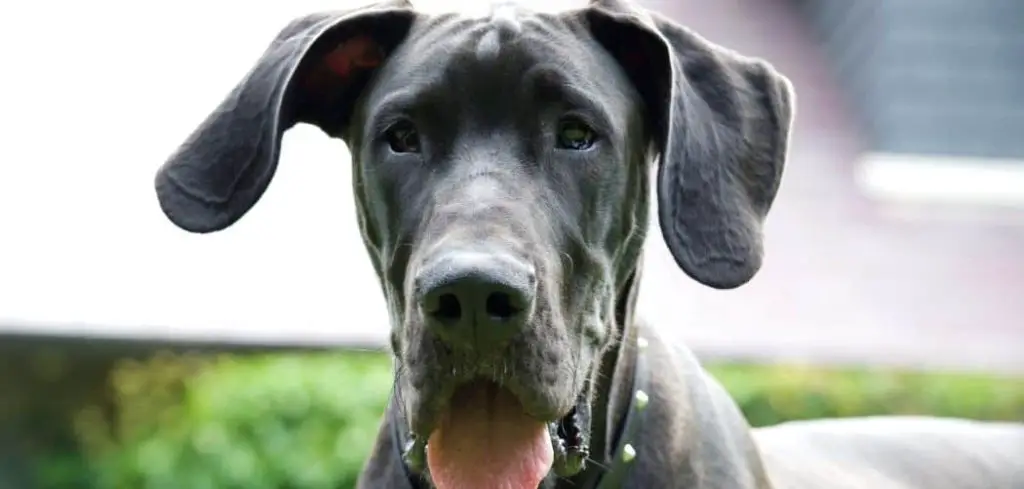When your dog is sneezing frequently and suddenly loses interest in food, it can be an unsettling combination. While sneezing alone might not seem like a big deal, pairing it with not eating can indicate something more serious.
We outline the common causes of dog sneezing and not eating, what you can do at home, and when to seek veterinary help.
Dog Sneezing and Not Eating — Why It Happens
Dogs may sneeze and refuse food due to upper respiratory infections, nasal blockages, dental pain, allergies, or more serious systemic illnesses. In some cases, foreign objects or irritants can trigger sneezing fits and make eating uncomfortable or painful.
Conditions affecting the mouth, nose, or throat may reduce appetite, especially if your dog struggles to breathe or smell their food. If symptoms persist beyond a day or two, veterinary evaluation is essential.

Common Causes of Dog Sneezing and Not Eating
Upper Respiratory Infections
Much like humans, dogs can catch colds or respiratory viruses that inflame the nasal passages and throat.
When your dog has a respiratory infection, they may sneeze, cough, have nasal discharge, and lose their appetite. The combination of nasal congestion and general malaise can make eating less appealing.
Kennel cough and canine influenza are common culprits, especially in social or high-traffic areas like daycares or dog parks.
Foreign Object in the Nose
Dogs explore the world with their noses — sometimes too enthusiastically.
A grass seed, small stick, or other debris can become lodged in the nasal passage, causing sneezing, pawing at the face, and a sudden loss of appetite. The discomfort may prevent your dog from focusing on food.
In more severe cases, you might notice bloody discharge or snorting sounds as they try to clear the obstruction.
Read more: Dog Reverse Sneezing and Not Eating (What it means and when to worry)
Nasal Tumors or Polyps
In older dogs, persistent sneezing and a change in eating habits can signal a more serious issue like a nasal tumor.
Benign or malignant growths in the nasal cavity can obstruct airflow and interfere with your dog’s ability to smell. Because scent is vital to appetite in dogs, reduced smell often means reduced eating.
Weight loss, labored breathing, or facial swelling may accompany these symptoms.
Allergies or Environmental Irritants
Allergies to pollen, dust, smoke, or household cleaners can cause sneezing in sensitive dogs.
While most dogs with allergies will still eat, severe irritation or accompanying nausea might reduce their appetite. Allergic reactions can also cause eye discharge, itchy skin, and wheezing.
Some dogs may react to sudden changes like a new detergent, air freshener, or nearby construction dust.
Dental Disease or Oral Pain
Dental problems often go unnoticed until a dog starts skipping meals.
Abscessed teeth, gum infections, or even a broken tooth can make chewing painful. If the discomfort is near the back of the mouth or upper jaw, sneezing may also occur due to sinus involvement.
You may notice drooling, bad breath, or your dog favoring one side of their mouth while eating.
Canine Distemper or More Severe Illness
Though less common due to widespread vaccinations, canine distemper can cause respiratory signs and appetite loss.
Dogs with distemper often show signs like sneezing, nasal discharge, eye discharge, fever, and severe lethargy. It’s a dangerous and potentially fatal viral illness that should be ruled out by your vet if other signs are present.
Other systemic illnesses like leptospirosis or tick-borne diseases can also cause nonspecific symptoms like sneezing and poor appetite.
What to Do If Your Dog Is Sneezing and Not Eating
If your dog is sneezing occasionally and just skipped one meal, it may be nothing serious. But if your dog continues to refuse food for over 24 hours and is sneezing frequently, there are a few things you can try at home.
Gently examine their nose and mouth for any visible foreign objects, discharge, or dental issues. Try offering strong-smelling, warm food like boiled chicken or canned dog food to stimulate appetite.
Keep your dog in a clean, smoke-free, and dust-free environment to reduce further nasal irritation. Use a humidifier if your home is dry — moisture can soothe irritated nasal passages.
Avoid giving over-the-counter cold medications unless instructed by your vet.
When to Call or Visit Your Vet
Persistent sneezing combined with not eating for more than 24 hours is worth a call to your vet.
Seek veterinary care immediately if:
Your dog has green or yellow nasal discharge.
There’s blood from the nose or mouth.
Your dog is showing signs of distress, labored breathing, or weakness.
Sneezing is violent or uncontrollable.
You suspect a nasal obstruction or inhaled object.
Appetite hasn’t returned within a day or two.
Your vet may perform a physical exam, dental check, nasal scope, or imaging to identify the underlying problem.
Read more: Why Is My Dog Not Eating and Not Moving? (Here’s why)
Key Takeaway
Sneezing paired with loss of appetite is your dog’s way of signaling discomfort.
While minor sneezing isn’t always a concern, the added refusal to eat makes it more urgent. From simple irritants to more serious conditions like infections or tumors, your vet can help identify the cause and guide the best treatment.
Trust your instincts — if your dog just doesn’t seem like themselves, a check-up is always a good idea.
